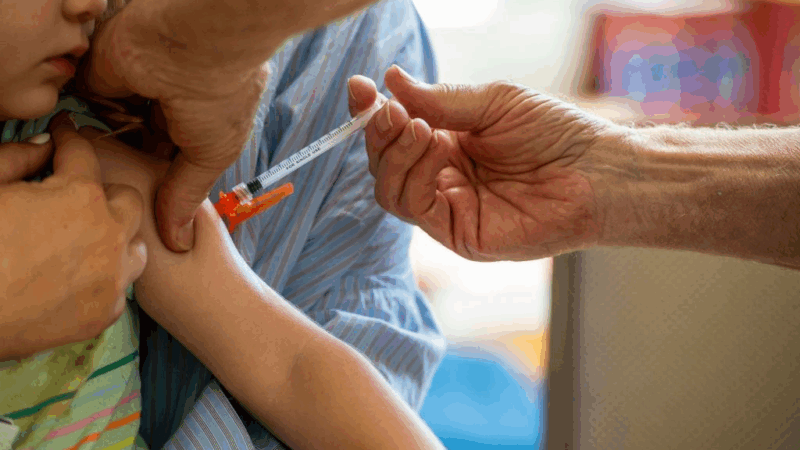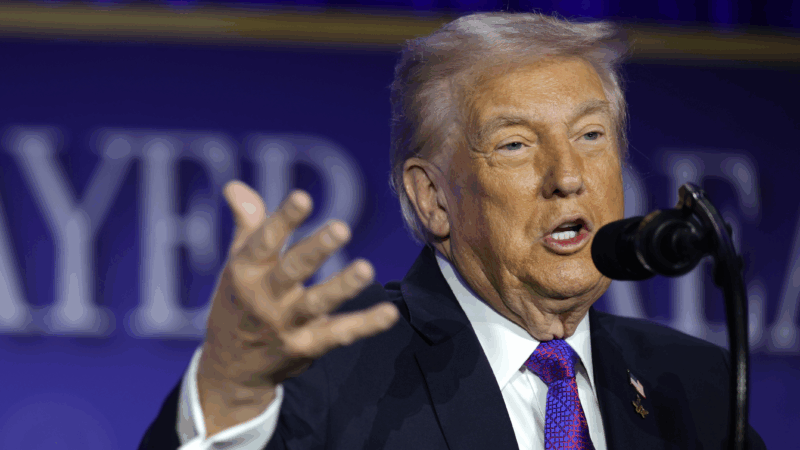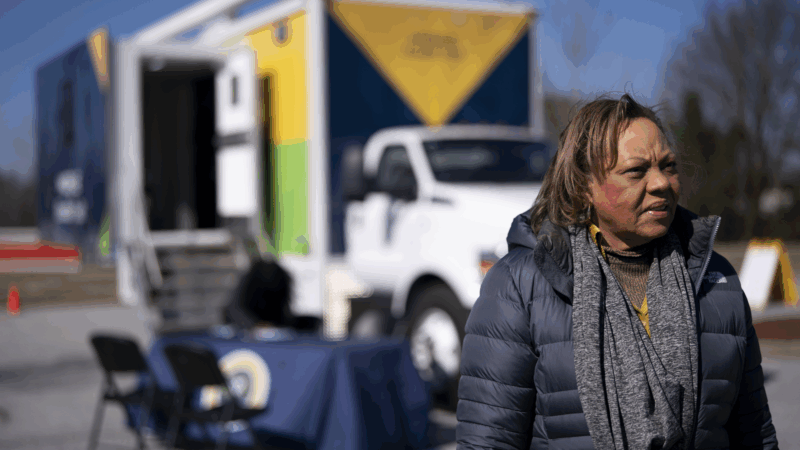The CDC still hasn’t issued COVID vaccine guidelines, leaving access in limbo
Remy Sweeney-Garrett desperately wants to get her daughters vaccinated against COVID-19. But so far that’s been impossible.
“I’m very worried, and frustrated,” says Sweeney-Garrett, 34, who lives in Seattle with her 9-year-old daughter Maxine and 18-month-old daughter Maeve. “And, yeah, I’m angry.”
Sweeney-Garrett hasn’t been able to get her daughters the shots because the Centers for Disease Control and Prevention has yet to issue final guidelines for administering them. The rules are necessary for the federal Vaccines for Children Program to start shipping the vaccines to doctors, health departments and others. About half of U.S. kids are eligible for shots through the program.
“I’m worried about my youngest daughter in particular having to go to the hospital because she is susceptible to respiratory complications,” Sweeney-Garrett says. “And it’s frustrating because I feel like this is within the control of the people in our government.”
The lag by the CDC is very unusual. Typically, the CDC acts within days – sometimes hours – because of the urgency of getting shots into arms before the winter surge.
The delay has created “a lot of confusion both among the public and even among providers around what the status is,” says Dr. Susan Kansagra, chief medical officer for the Association of State and Territorial Health Officials.
Sweeney-Garrett is far from alone.
“We have parents asking every day for vaccines. They want the COVID vaccine,” says Dr. Elias Kass, who’s the Sweeney-Garrett family’s doctor. “And we don’t have it. And we don’t have an ETA. We don’t have anything. We don’t want kids to be sick. We have the opportunity to prevent that suffering. And we as a society are blowing it.”
The CDC’s delay has also forced adults seeking vaccination to continue navigating an often confusing and frustrating patchwork of state rules that have, in many places, made it difficult if not impossible for them to get vaccinated too. Even though many states have taken steps to make it easier for people to get the vaccines, some still require prescriptions and some pharmacists are still turning away people who can’t document they meet new eligibility requirements.
“It’s a mess. And it’s an easily avoidable mess,” says Dorit Reiss, who studies vaccine policies at the University of California, San Francisco. “They chose not to take action. I think it will harm public health and the result will be more COVID-19 and more harm from it.”
The Department of Health and Human Services, which oversees the CDC, did not immediately respond to NPR’s requests for comment or explanation.
This year’s roll-out of the COVID vaccines has been unusually chaotic from the start. Until this year, anyone 6 months or older could get vaccinated by their pharmacist without a prescription. But for the first time this year, the Food and Drug Administration only approved the new shots for people at risk for serious complications because of their age or health, causing widespread confusion and frustration.
Then the CDC’s powerful Advisory Committee on Immunization Practices, which Health Secretary Robert F. Kennedy Jr. packed with like-minded anti-vaccine members, weighed in about the nuts and bolts of making them widely available.
After a tumultuous two-day meeting last month, Kennedy’s committee recommended adding a new hoop to getting vaccinated, but also took steps that could make more people eligible, let more pharmacists give the shots and start shipping the vaccines for kids.
But the CDC has yet to accept those recommendations— freezing everything in limbo.
“This is a critical piece of enabling downstream access,” says Kansagra of the Association of State and Territorial Health Officials. “It’s a huge problem.”
And now with the government shut down, no one knows when the CDC might finally act or what the agency might do.
Officials are especially worried because of the upcoming winter respiratory reason.
“We don’t know exactly how bad a season it could be, but it could certainly be very bad,” says Dr. Philip Huang, director of the Dallas Health and Human Services department in Texas. “It’s very frustrating. Our jobs are being made harder rather than easier.”
Mariah Carey, coffee makers and other highlights from the Olympic opening ceremony
NPR reporters at the Milan opening ceremony layered up and took notes.
Trump’s harsh immigration tactics are taking a political hit
President Trump's popularity on one of his political strengths is in jeopardy.
A drop in CDC health alerts leaves doctors ‘flying blind’
Doctors and public health officials are concerned about the drop in health alerts from the Centers for Disease Control and Prevention since President Trump returned for a second term.
Photos: Highlights from the Winter Olympics opening ceremony
Athletes from around the world attended the 2026 Winter Olympics opening ceremony in Milan.
Alabama sets execution for man in auto parts store customer’s death
Gov. Kay Ivey on Thursday set a March 12 execution using nitrogen gas for Charles “Sonny” Burton. Burton was convicted as an accomplice in the shooting death of Doug Battle, a customer who was killed during an 1991 robbery of an auto parts store in Talladega.
Trump posts racist meme of the Obamas — then deletes it
Trump's racist post came at the end of a minute-long video promoting conspiracy theories about the 2020 election.







